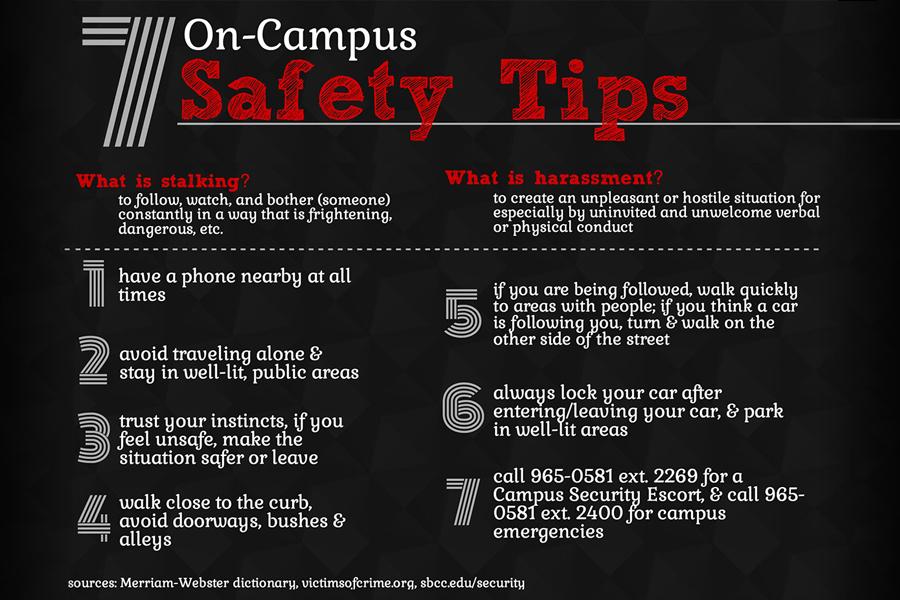Reports on stalking among City College students have increased over the past year, a crime that has previously been highly unreported not only on campus but nation-wide.
Campus statistics must now contain a category for stalking after a new rule was created for all colleges and universities that receive federal funding. Since the new rule Campus Security had to go back over previous years to retrieve all stalking reports and add them to their campus crime statistics.
In 2011 there where only six reports on stalking among City College students, a number that more than doubled by 2013 to 13 crimes reported.
Head of Campus Security Erik Fricke believes that this rise is a result of City College students being more alert now of what can be considered stalking and that it must be reported.
“The information is out there not only for our campus, but across the nation, about the dangers of stalking,” said Fricke. “Students are more informed and better aware of what is happening.”
Stalking in California is stated as a person who repeatedly follows, harasses and threatens another person with the intent to cause fear for the victim’s safety.
On the Campus Security’s webpage there are numerous instructions on how to react if a person believes they are being stalked.
Fricke points out that if a crime occurs, the student should document the incident with information on time and location and a detailed description of what happened.
The majority of stalking crimes involve men stalking women, a trend also seen at City College and that shows up frequently on Campus Security’s crime log.
“I don’t recall any incidents reported to security on women stalking men,” said Fricke.
City College has a large amount of international students who live and study in a culture different from their own.
Emma Hoejner, an international student who started her first semester at City College this fall said that the dating culture is very different than in her home country of Sweden. Hoejner said she has been in several incidents regarding male students that made her feel uncomfortable.
“Guys here in America are more social and outgoing but sometimes intrusive,” said Hoejner. “But it’s hard to say no because I don’t want to be perceived as offensive.”
Campus Security lectures international classes on this matter to let them know the importance of being clear and assertive when demanding to be left alone. This is also one of the tips on their webpage on how to react toward a stalker.
“We tell them that it is okay to be rude if someone bothers you,” said Fricke.
The police are always notified in life threatening incidents where Campus Security doesn’t have the full ability to investigate.
However, in most cases where a student is being charged with stalking, the alleged stalker would meet with the dean of student discipline to receive directive to avoid all contact with the accuser.
Fricke states that a person can confront the stalker if it’s not an immediate threat, but should call Campus Security and 911 if the situation is serious.
“If you know you’re being stalked, report it to either the college or police and let them handle it,“ said Fricke.














